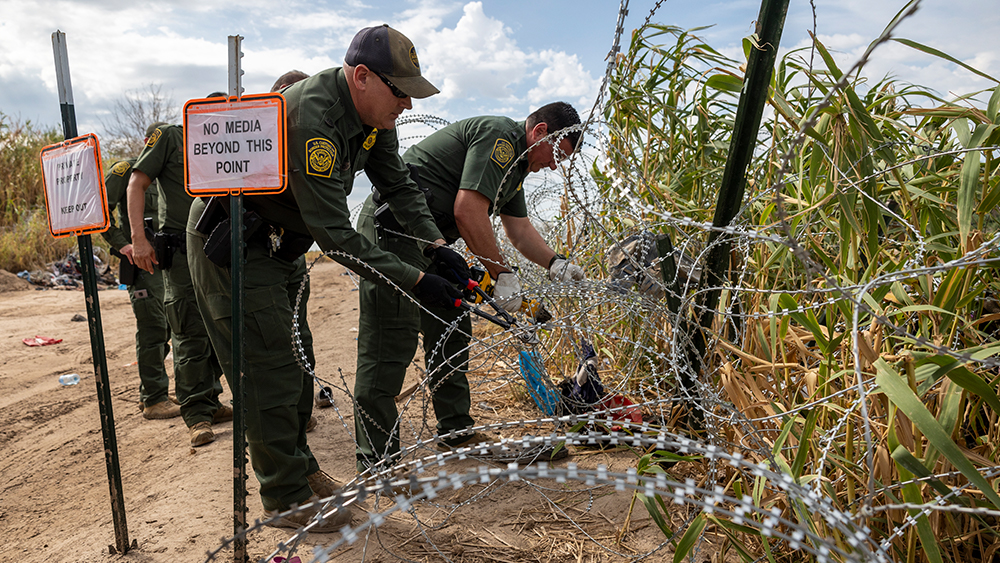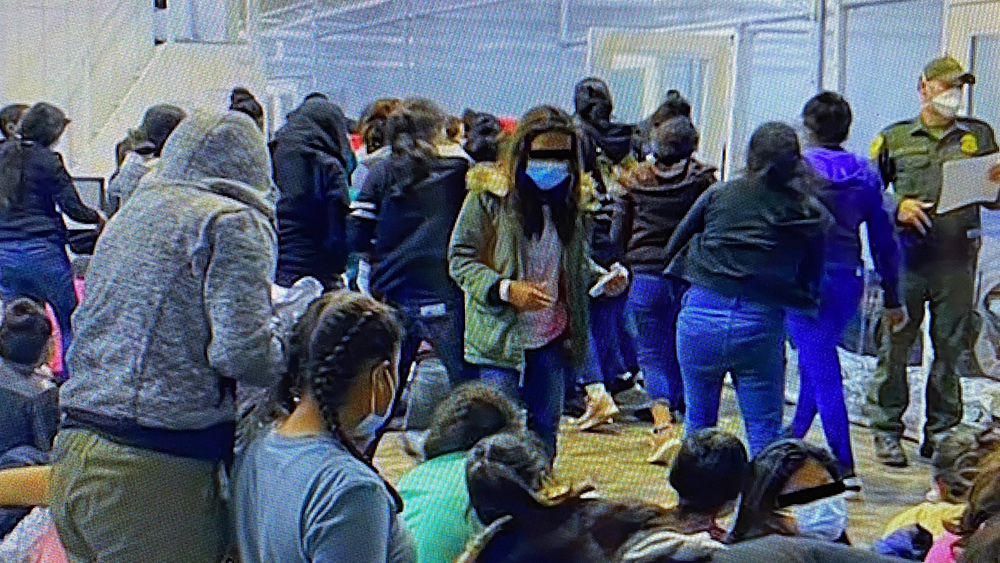U.S. Supreme Court betrays America and authorizes the total INVASION of illegals by ordering Texas to remove wire fencing
01/24/2024 / By Cassie B.

America’s border crisis is about to take a turn for the worse as the U.S. Supreme Court has ruled in favor of allowing Border Patrol agents to cut razor wire that was installed along the border between the U.S. and Mexico by Texas Governor Greg Abbott, who was fed up with the influx of illegal immigrants entering his state.
The concertina wire at the center of the ruling spans approximately 30 miles of border near the city of Eagle Pass, Texas.
It was a 5 to 4 vote, with Justices Samuel Alito, Brett Kavanaugh, Neil Gorsuch and Clarence Thomas voting to prevent border control agents from taking down the wire. Meanwhile, Chief Justice John Roberts and Justices Ketanji Brown Jackson, Elena Kagan, Sonia Sotomayor and Amy Coney Barrett took the Biden administration’s side. None of the justices provided explanations for their votes.
The ruling is seen as a win for the Biden administration in its long-running battle against the Texas governor over the border. They claim that Texas is preventing federal agents from performing their duties and that the barrier makes it difficult for agents to reach illegals who have already entered the country.
However, the state of Texas has argued that the administration is failing to secure the border and they had to take matters into their own hands under their Operation Lone Star plan. Texas Attorney General Ken Paxton said that this new temporary ruling “allows Biden to continue his illegal effort to aid the foreign invasion of America.”
He wrote in a post on X: “The destruction of Texas’s border barriers will not help enforce the law or keep American citizens safe. This fight is not over, and I look forward to defending our state’s sovereignty.”
Paxton had previously filed a lawsuit against the Biden administration, along with a number of federal agencies and officials, for cutting the razor wire, which they maintain that federal agents did to facilitate illegal crossings of groups of immigrants through the river.
In a statement last October, Paxton said: “Federal agents in some cases attempted to ease aliens’ ability to illegally climb up the riverbank into Texas by attaching ropes or cables to the back of pickup trucks. Federal agents regularly cut new openings in the wire fence, sometimes immediately after Texas officers placed new wire to plug gaps in fencing barriers.”
The U.S. Court of Appeals for the 5th Circuit took Texas’s side, ordering the Border Patrol agents to stop removing the wire while court proceedings are still in progress. However, the Justice Department asked the Supreme Court justices to weigh in on an emergency basis and do away with the order.
Removing the wire will encourage illegal crossings
An Abbott spokesperson has said that getting rid of the wire and other means of deterrence will only serve to encourage migrants to take their chances with risky and illegal crossings.
The President for the National Border Patrol Council, Brandon Judd, agrees that this will have the effect of encouraging further illegal immigration, and he also highlighted the risks it poses to national security.
“Unfortunately, this means Border Patrol agents are going to be tied up dealing with give ups rather than going after the criminal elements that constantly cross our borders illegally,” he told Fox News.
Concerns about national security risks are growing after an overwhelmed Customs and Border Protection reduced the number of questions it asks when screening Chinese asylum seekers at the border, who make up a growing percentage of illegal border crossings. The list of 40 questions has been trimmed down to just five, raising the chances of accidentally giving asylum to terrorists, spies and other people with bad intentions entering from one of the nation’s biggest adversaries.
Sources for this article include:
Submit a correction >>
Tagged Under:
big government, Border Patrol, border security, chaos, conspiracy, Dangerous, greater texan, illegal immigration, insanity, invasions usa, Joe Biden, Ken Paxton, migrants, national security, Open border, outrage, Resist, Supreme Court, Texas, traitors, treason, White House, wire fencing
This article may contain statements that reflect the opinion of the author




















